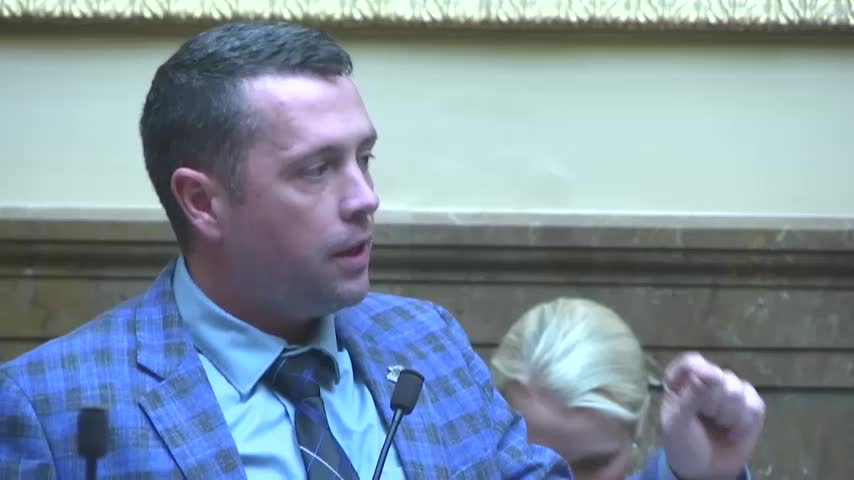House passes bill allowing tiered water rates; amendment to reduce mandate fails
Get AI-powered insights, summaries, and transcripts
Subscribe
Summary
The Utah House passed third substitute House Bill 274 to permit public water providers to implement tiered pricing aimed at encouraging conservation. An amendment to weaken a requirement failed on the floor before the bill passed 67–2 and was transmitted to the Senate.
Representative Snyder, sponsor of third substitute House Bill 274, told the House the measure would let public water providers set tiered rates so heavier users pay more than light users. "The ability to tier water rates. What does that mean in practice? It means that if you don't use a lot of water, you shouldn't pay the same amount as someone who uses a whole heap ton of water," Snyder said on the floor.
Snyder said the bill creates a process for water providers to apply higher block rates when conservation is needed and that providers are not required to change pricing "if there is enough water for a system." He also described provisions aimed at secondary water systems and credited previous investments to meter secondary hookups. "Now the second piece of this bill looks at 02/1930... all hookups on secondary systems metered moving forward," Snyder said, adding the substitute allows providers to consider "green space, urban agriculture, food security" when setting rates.
Representative Chu moved to amend a provision (line 194) that would change the word "shall" to "may," arguing the change would give water providers discretion. Chu said the substitution would "give our water retailers... a little more opportunity to adjust" and therefore favored changing the requirement. Representative Snyder opposed the amendment, saying the bill as drafted already preserves discretion and that changing "shall" to "may" could produce unintended consequences, including making notice of block unit rates optional. Representative Tom Peterson and Representative Bolander also spoke against the amendment.
The amendment failed on a voice vote. Floor action then closed debate and Representative Snyder urged colleagues to support the bill, saying Utah must find ways "to pay the actual cost of water" to sustain quality of life and economic uses including agriculture.
Voting was recorded after final remarks. The third substitute to House Bill 274 passed the House, receiving 67 yes votes and 2 no votes; the bill will be transmitted to the Senate for further consideration.
The House debate included discussion of carve-outs for small or unmetered systems and policy language allowing providers to weigh urban farming and other uses when setting tiered rates. No specific changes to existing statute names were specified on the floor beyond references to "existing statute" and prior metering legislation mentioned by the sponsor.
The House's action is procedural: the bill passed the House and will next be considered by the Utah Senate.
